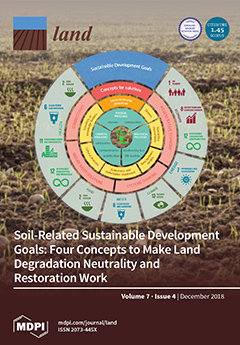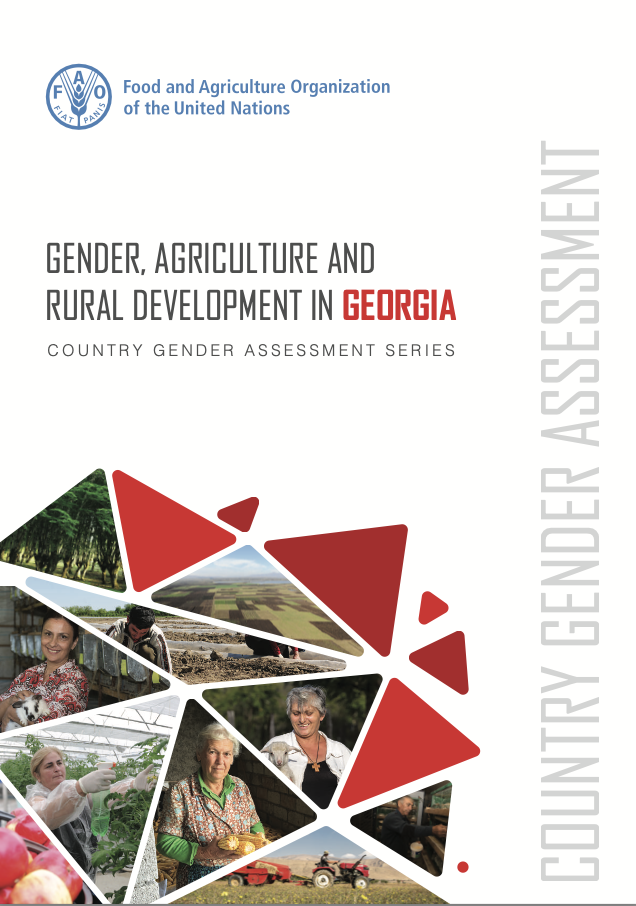Understanding Gender Relations in the Land Discourse
Soil-Related Sustainable Development Goals: Four Concepts to Make Land Degradation Neutrality and Restoration Work
In the effort to achieve the Sustainable Development Goals (SDGs) related to food, health, water, and climate, an increase in pressure on land is highly likely. To avoid further land degradation and promote land restoration, multifunctional use of land is needed within the boundaries of the soil-water system. In addition, awareness-raising, a change in stakeholders’ attitudes, and a change in economics are essential. The attainment of a balance between the economy, society, and the biosphere calls for a holistic approach.
Institutional Functionality in Participatory Integrated Watershed Development of Tana Sub-Basin, Ethiopia
Sustaining watersheds that were developed through community mobilization are a major challenge in Ethiopia despite significant efforts to promote soil and water conservation technologies and approaches. This paper investigates the hypothesis that institutional rationality and functionality play an important role in developing enduring watersheds by comparing the good performing Model research watersheds and adjacent watersheds developed through extensively promoted community mobilization.
Participatory scenario development process in addressing potential impacts of anthropogenic activities on the ecosystem services of Mt. Marsabit forest, Kenya
The Marsabit Forest Reserve (MFR), a green island in an arid environmental setting, generates multiple ecosystem goods and services (ES) to the local community critical for their livelihoods. The forest has been experiencing substantial land conversion for town expansion, agriculture production and settlements threatening long-term ES provision. Sustaining the forest ES under increasing anthropogenic pressures is one of the great challenges of the Marsabit forest community.
Strengthening the State: Logging and Neoliberal Politics in East New Britain, Papua New Guinea
In this paper I will examine how logging in Papua New Guinea affects the relationship between the state and the local communities on whose lands logging operations take place. The point of departure of my argument is the Ili- Wawas Integrated Project, a combined logging and agricultural project which seeks to bring economic development to the remote Pomio district of East New Britain Province by connecting existing logging roads to the limited national road network around the provincial capital.
Strengthening the State: Logging and Neoliberal Politics in East New Britain, Papua New Guinea
In this paper I will examine how logging in Papua New Guinea affects the relationship between the state and the local communities on whose lands logging operations take place. The point of departure of my argument is the Ili- Wawas Integrated Project, a combined logging and agricultural project which seeks to bring economic development to the remote Pomio district of East New Britain Province by connecting existing logging roads to the limited national road network around the provincial capital.
Causes and Spatial Implications of violating Building Space Standards in Mwanza (Rock) City: Case of Mahina Settlement.
Urban centres emerge, develop and expand. In the course of development or expansion, housing development on hilly landscapes may be more challenging than on relatively flat or flat terrains, forcing developers not to comply with building standards.
Gender, agriculture and rural development in Georgia
FAO is committed to reducing gender inequalities through its interventions, and this gender assessment has been produced as part of its broader efforts to generate evidence and knowledge in compliance with its Policy on Gender Equality. This assessment highlights the challenges, gaps and practices in the area of gender and agriculture and rural development in Georgia that need to be considered by policy-makers and project managers in their decision-making and their implementation of development interventions. The main gender inequalities in Georgia are reiterated in this assessment.






